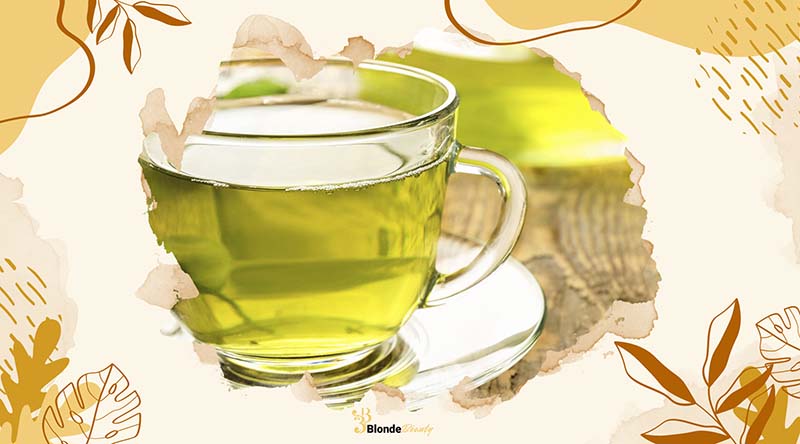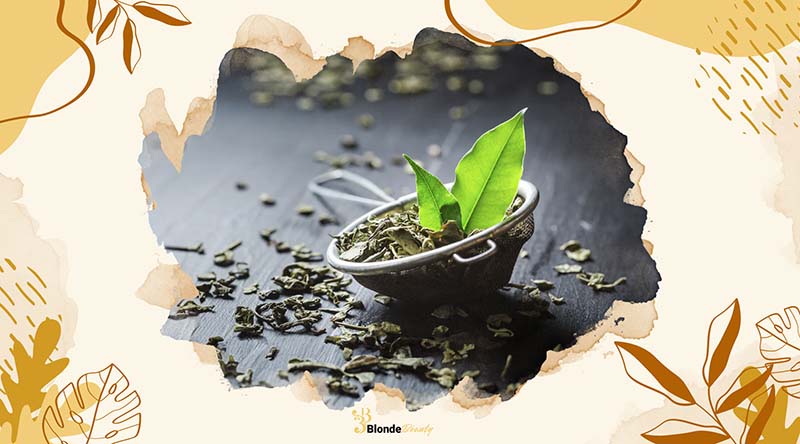Does green tea boost testosterone? This question arises because green tea, a cornerstone in health and wellness circles due to its high antioxidant content, frequently appears in the ingredient lists of many testosterone boosters.
Its popularity suggests a possible connection to male hormone health, though the direct link between green tea and testosterone enhancement remains less substantiated by concrete evidence. To shed light on this intriguing subject, we’ve meticulously reviewed the foremost research studies.
Our objective was to decipher the role green tea plays in relation to testosterone, exploring its potential connections and the benefits it provides.
You should also read the following articles:
- Is Avocado Good for Erectile Dysfunction? Uncovering Its Benefits.
- Does Porn Cause Premature Ejaculation? Insights & Remedies.
- Is Watermelon Good for Erectile Dysfunction? Reveal the Truth!.
Does Green Tea Boost Testosterone?
Research has looked into whether green tea affects testosterone levels. Some sources propose that green tea might help regulate testosterone levels by controlling weight and potentially increasing testosterone output if levels are low.
However, other studies suggest that green tea could have adverse effects on testosterone production, particularly in high doses. Green tea contains polyphenols, such as catechins, which may influence testosterone production by lessening oxidative stress.
Nonetheless, the precise mechanisms and direct impact of green tea polyphenols on free testosterone levels remain unclear, necessitating further research to establish whether green tea truly boosts testosterone.

What Effect Does Green Tea Have on Testosterone?
Recent clinical research suggests that green tea has a regulatory impact on testosterone levels. It can either elevate the hormone if levels are low or aid the body in decreasing production or binding excess testosterone if levels are too high.
Additionally, green tea promotes male fertility, thanks to the antioxidant EGCG. However, green tea should be consumed in moderation. Excessive EGCG in the body can have the opposite effect, lowering fertility quality.
How Does Green Tea Help Increase Testosterone?
The potential of green tea to increase testosterone levels is a topic that has garnered mixed findings in research. Some studies propose that green tea, abundant in polyphenols like catechins, could impact testosterone production by lessening oxidative stress, potentially leading to higher testosterone levels.
Specifically, certain catechins found in green tea, such as epigallocatechin gallate (EGCG), have been associated with inhibiting the enzyme 5-alpha reductase. This enzyme typically breaks down testosterone into dihydrotestosterone (DHT).
By decreasing the activity of this enzyme, green tea might help sustain healthy testosterone levels. Additionally, green tea’s antioxidant properties may contribute to reducing overall oxidative stress in the body, indirectly supporting testosterone production.

What Other Effects Does Green Tea Bring?
Green tea offers a range of health benefits beyond its potential influence on testosterone levels. Here are some of the positive effects associated with green tea:
- Weight Loss: Green tea is renowned for its ability to aid in weight loss and fat metabolism, making it a favored option for individuals aiming to manage their weight effectively.
- Antioxidant Properties: Rich in polyphenols like catechins and epigallocatechin gallate (EGCG), green tea acts as an antioxidant, combating oxidative stress and safeguarding cells from damage.
- Anti-Inflammatory Benefits: The antioxidants in green tea possess anti-inflammatory properties that may help alleviate inflammation in the body, contributing to overall health and well-being.
- Cancer Prevention: Some studies suggest that components of green tea may impede tumor cell growth, potentially offering benefits in cancer prevention, particularly concerning prostate cancer.
- Heart Health: Green tea has been linked to cardiovascular advantages, including improving cholesterol levels, lowering the risk of heart disease, and supporting overall heart health.
- Immune System Support: The catechins in green tea can bolster the immune system, aiding in the fight against certain bacteria and viruses, and regulating hormone production and activities.
- Hair Growth: Green tea has been associated with potential benefits for hair growth, with research indicating positive effects on maintaining stable tissue testosterone levels and reducing testosterone breakdown into dihydrotestosterone (DHT).

FAQ
Does mint tea reduce testosterone?
Mint tea has been linked to reduced testosterone levels in some studies, particularly due to its potential anti-androgen effects.
Does chamomile tea increase testosterone?
There isn’t conclusive evidence that chamomile tea significantly affects testosterone levels.
Does ginger tea increase testosterone?
Some research suggests ginger may help increase testosterone levels, thanks to its antioxidant properties.
Does spearmint tea reduce testosterone?
Similar to mint tea, spearmint is often associated with lower testosterone levels due to its potential to exhibit anti-androgenic properties.
Does rooibos tea increase testosterone?
There’s limited research on rooibos tea’s effect on testosterone levels. It’s generally not associated with significant hormonal impacts.
Does black tea increase testosterone?
Black tea has been associated with potential effects on testosterone levels.
Studies suggest that black tea, particularly its polyphenols like theaflavins and epicatechin, may influence testosterone production.
Does hibiscus tea increase testosterone?
Some animal studies suggest hibiscus may lower testosterone levels.
Does nettle tea increase testosterone?
Nettle root is sometimes used to support prostate health and may interact with sex hormone-binding globulin (SHBG), potentially influencing testosterone levels.
However, direct effects on testosterone increase are not well-established.
Conclusion
Does green tea boost testosterone? As you sift through the varied research references in this article, the question of whether to add green tea to your diet for testosterone enhancement might seem complex. Unquestionably, green tea is a leading natural remedy for weight loss. If shedding pounds to boost testosterone is your goal, green tea could be a beneficial supplement to your regimen. However, it must be consumed in low to moderate doses and combined with other testosterone-supporting foods, regular exercise, and adequate rest.
While green tea’s weight loss benefits are clear, the potential drawbacks of green tea extract, especially in high doses, should not be overlooked. Therefore, steering clear of large amounts of this substance is advisable. Consulting with a healthcare provider to uncover the root cause of any decline in testosterone can be immensely helpful, offering clarity and guiding you towards effective solutions.
Visit other Blondebeauty articles to gain more health knowledge.

Laureate Professor Clare Collins
Professor Clare Collins is a leading expert in nutrition and dietetics at the School of Health Sciences, part of the College of Health, Medicine and Wellbeing. Her work is changing the way we think about food and health. She grew up as one of nine children and was the first in her family to finish high school and go to college. This background gave her a strong work ethic and a deep appreciation for seizing opportunities.
As the Director of the Hunter Medical Research Institute’s Food and Nutrition Program and a recipient of three NHMRC Research Fellowships, Professor Collins is making a big difference in public health. She focuses on helping people who are often overlooked, using new technologies like apps and online programs to improve their nutrition and reduce the risk of chronic diseases.
Professor Collins is well-respected and has been recognized as a Fellow in four major health and science organizations. She leads a diverse team of experts, including dietitians, computer scientists, and engineers, working together on global health projects.
Her achievements are impressive. She has received over $29 million in research funding, published more than 450 papers, and helped 35 PhD and Master’s students complete their degrees. She’s also active in sharing her knowledge with the public. She has developed tools like the Australian Eating Survey and the Healthy Eating Quiz, and she often appears in the media to talk about nutrition.
PUBLISHED ARTICLES
- Collins, C. (2019). “The Effect of a Pilot Dietary Intervention on Pain Outcomes in Patients Attending a Tertiary Pain Service.”
- Collins, C. (2022). “Variation in cardiovascular disease risk factors among older adults.”
- Collins, C. (2022). “Evaluation of an online intervention for improving stroke survivors’ health-related quality of life: A randomised controlled trial.”
These articles show Professor Collins’s commitment to understanding how better nutrition can improve health. Her work is important for researchers, doctors, and anyone interested in healthy living.
